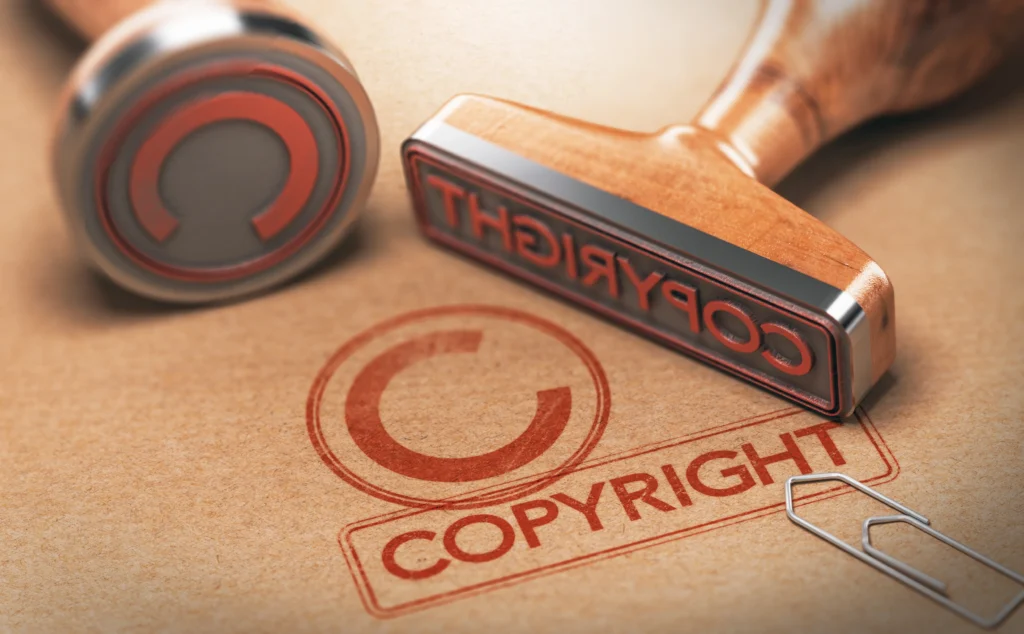The Role of Legal Services for Startups in Protecting Intellectual Property
- Insights & News
- February 27, 2025
The Role of Legal Services for Startups in Protecting Intellectual Property
Startups compete on innovation. Intellectual property (IP) is one of the pillars upon which startups guard their new ideas, names, and technology. Without proper legal protection, startups risk losing control over their innovations, facing infringement, or being entangled in costly legal disputes.
The majority of startups face challenges securing IP rights. Some struggle with the complexities of patent applications, trademark registration, or copyright claims. Others simply do not take adequate care to ensure that their contracts are well-structured to protect their ownership rights. Because of these concerns, startup legal services are needed to establish sound intellectual property protections from the beginning.
Understanding Intellectual Property for Startups
Startups create value in intellectual property assets such as brand names, software, and proprietary technology. Maintaining these assets requires an understanding of the different forms of intellectual property and how they are applied to business operations.
Startups typically need to be protected in terms of trademarks, patents, copyrights, and trade secrets. Trademarks ensure branding elements such as names and logos are secure. Patents grant sole ownership of inventions, while copyrights guarantee creative work such as written documents, software, and online content. Trade secrets ensure that secret business data, such as secret algorithms, processes, and methods of marketing, are safeguarded.
Why Startups Need Legal Services for Intellectual Property Protection
Evading Costly Legal Disputes
Startups are susceptible to legal disputes when they do not safeguard their intellectual property in a timely manner. Conflicts over trademark rights, patent rights, or copyright infringement can occur. A legal team avoids such occurrences by possessing all the relevant registrations and protection.
Proper Intellectual Property Ownership
Ownership disagreements are common in startups, particularly when an invention involves multiple founders, employees, or contractors. Without clear-cut agreements, conflicts may occur over who owns a startup’s innovations. Startup companies’ legal services help design agreements that outline ownership and prevent future conflicts.
Drafting and Enforcing Contracts
A well-written contract maintains intellectual property within the startup’s possession, even for employees, contractors, or business partners. Intellectual property assignment agreements and non-disclosure agreements ensure confidential information and ensure that any intellectual property created for the company belongs to the startup.
Managing Licensing and Agreements
Startups typically enter into contracts in which intellectual property is assigned, licensed, or distributed. Under licensing software, the purchase of patents, or the negotiation of partnerships, legal advice for startups secures that agreements are prepared in a manner to protect their interests. Without appropriately drafted agreements, startups can lose control over innovations or face issues enforcing their rights.
Key Legal Services for Startups to Protect Intellectual Property
Trademark Registration and Enforcement
A trademark protects a startup’s brand identity, for example, names, logos, and slogans. Trademark registration dissuades competitors from using similar branding that could confuse consumers. Lawyers guide startups through the trademark application process and defend trademark rights against infringement.
Patent Application and Protection
Technology, biotech, or manufacturing startups usually create new inventions that require patent protection. A legal team helps prepare and file patent applications to ensure the invention meets the legal standards for exclusivity. Protection against copying or selling similar innovations by competitors is ensured.
Copyright Protection
Copyright protection is required for startups creating software, digital media, or intellectual works. Copyright law safeguards original work from misuse. Legal services help startups register copyrights, establish licensing agreements, and take action against infringement.
Preparing Intellectual Property Agreements
Intellectual property rights contracts are critical in business relationships. A well-written contract prevents disputes regarding ownership and usage rights. Legal teams assist in preparing NDAs, employee contracts, and license contracts that give startups ownership over intellectual assets.
Litigation and Dispute Resolution
In intellectual property disputes, the law may be necessary to defend rights or resolve differences. Startups facing claims of infringement, partnership disputes, or breach of contract are assisted by legal counsel in negotiation, mediation, or litigation.
How to Choose the Right Startup Legal Services
Industry-Specific Knowledge
Not all law firms practice intellectual property or startup-specific law. Startups should work with firms experienced in their industry, whether technology, biotech, or creative services. A legal team familiar with industry-specific matters provides better counsel for protecting innovations.
Full-Service Legal Counsel
A startup requires more than intellectual property protection. A law firm offering corporate law support, financing agreements, and regulatory compliance offers comprehensive legal protection. Full-service legal support for startup companies helps startups navigate risk throughout all stages of growth.
Reputation and Client Reviews
Reputation is important when selecting a legal team. Startups should research a law firm’s past clients, case results, and experience handling intellectual property matters. Positive client reviews and industry recognition are indicators of quality legal expertise.
Cost and Fee Structure
Startups typically operate on limited budgets, so the expense of legal services is an important consideration. Some law firms offer flexible fee arrangements, such as flat fees, retainers, or deferred fees. Knowing the fee arrangement enables startups to select legal services that they can afford.
Common Mistakes Startups Make in Intellectual Property Protection
Failing to Register Trademarks and Patents Early
Startups may delay trademark or patent registration due to cost concerns or lack of awareness. However, delaying these protections increases the risk of competitors claiming similar trademarks or developing similar technologies. Early registration prevents legal disputes and secures exclusive rights.
Not Securing Intellectual Property Ownership in Employment Contracts
Ownership rights must be clearly defined when employees or contractors contribute to a startup’s intellectual property. Without legal agreements, disputes may arise over who owns an invention or piece of code. Legal teams ensure contracts establish that intellectual property belongs to the startup, preventing future conflicts.
Ignoring the Importance of NDAs in Business Negotiations
Startups often share sensitive information with potential investors, partners, and employees. Without an NDA, confidential details may be exposed or used without consent. A legal team ensures startups use NDAs effectively to protect trade secrets and business strategies.

Conclusion
- Intellectual property protection is also among the most significant contributors to a startup's long-term success. Without protection, startups risk losing ownership of their products, brands, and ideas. Legal services for startups also constitute a central function in helping companies register trademarks, secure patents, draft contracts, and resolve disputes.
- Choosing the best legal services startup ensures broad protection and reduces intellectual property ownership risks and enforcement issues. Working with experienced lawyers allows startups to focus on development while safeguarding their most valuable assets.



